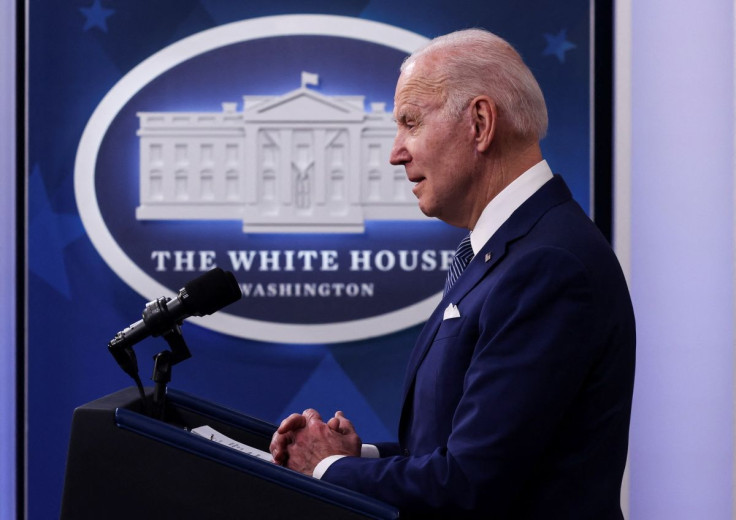U.S. Congress Negotiators Nearing Deal On Ukraine Aid, Government Funding Bill

U.S. congressional negotiators on Monday were near a deal on a bill to provide Ukraine with billions of dollars in emergency aid, along with additional COVID-19 funding and money to fund the U.S. government through Sept. 30, sources said.
Lawmakers were racing against a midnight Friday deadline for passing such a sweeping bill, when existing funds are exhausted. Failure to meet the deadline would either require another stop-gap funding bill or force partial government shutdowns during a time of international crisis.
Congressional sources with knowledge of the negotiations said Democratic and Republican leaders were hoping to unveil the legislation as early as Tuesday but stressed that talks were still ongoing.
The progress comes in a week when congressional Democrats also were trying to start salvaging the unfinished parts of U.S. President Joe Biden's domestic agenda and respond to voters' demands to address inflation while also bolstering high-tech jobs to compete with China.
Biden, in his State of the Union address last week, sketched out a more moderate path following a year of spending around $3 trillion to tame the COVID-19 pandemic and invest in infrastructure improvements.
It is up to the president and his fellow Democrats in Congress to figure out how to unite warring progressive and centrist wings of the party on a narrower series of domestic investments now that his $1.75 billion "Build Back Better" initiative is in ruins.
That sweeping measure would have recast American society, providing help for families to pay for child- and elder-care costs, subsidizing prekindergarten education and scores of other initiatives, such as renewing an expanded child tax credit for lower-income families.
Biden provided strong hints of where he now would like to see Congress move in the months leading up to the Nov. 8 elections that will determine whether his party maintains control of the House of Representatives and Senate.
Priorities include reducing the high cost of prescription drugs such as insulin, combating climate change through tax incentives to make homes and businesses more energy-efficient while weaning Americans off autos that guzzle ever-more-expensive gasoline and raising taxes on corporations and the wealthy to pay for these initiatives.
Senate Republicans, however, could stand in the way of some of these initiatives, citing rising budget deficits. That could prompt Democrats to revisit using a special procedure known as "reconciliation" to pass some legislation without Republican support.
Democrats will try to hash out the road ahead in annual retreats they are holding this week. Biden is expected to make his case to senators holding a retreat in Washington on Wednesday and on Friday at a final session of a three-day meeting of House Democrats in Philadelphia.
© Copyright Thomson Reuters {{Year}}. All rights reserved.



















